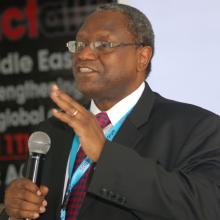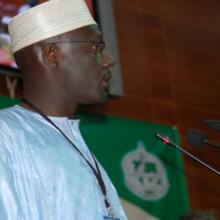Seleka
As the number of Muslims in Bangui, the Central African Republic capital, dwindles to an estimated 900, the head of a global alliance of churches has urged tackling the conflict from a political rather than a religious angle if the Muslim exodus is to be reversed.
The alliance is one of the agencies providing humanitarian assistance in the country, where chaos erupted last year after the mainly Muslim rebels toppled the government.
The Seleka rebels looted, raped, and killed mainly Christian civilians, prompting the formation of an equally brutal pro-Christian anti-Balaka (anti-machete) militia.
African religious leaders are appealing for an end to violence against Muslims in the Central African Republic as thousands flee to neighboring Chad and Cameroon.
In recent weeks, a pro-Christian militia known as anti-Balaka (or anti-machete) has killed and mutilated Muslims as they have tried to leave the capital Bangui by the truckload.
Muslims had enjoyed some protection when Michel Djotodia, the country’s first interim Muslim president, was in power. Djotodia resigned under pressure in January and Catherine Samba-Panza was appointed the interim president.
This weekend we’ll commemorate the too-short life and great work of Dr. Martin Luther King Jr. While we rightly celebrate his life dedicated to advancing equality for all, too often we overlook his call to peacemaking. This year, in light of conflicts in Syria, South Sudan, and an often-overlooked war in Central African Republic, we should remember his words.
In his 1967 speech, “Beyond Vietnam — A Time to Break Silence,” King opposed the violence, saying:
"To me the relationship of this ministry [of Jesus Christ] to the making of peace is so obvious that I sometimes marvel at those who ask me why I'm speaking against the war. Could it be that they do not know that the good news was meant for all men — for Communist and capitalist, for their children and ours, for black and for white, for revolutionary and conservative?"
Those aware of our long history at Sojourners know that we have always been committed to peace, to opposing unjust wars and finding nonviolent solutions wherever possible. And in all the work we do, we aim to speak out for the least of these, the poorest and most vulnerable.


